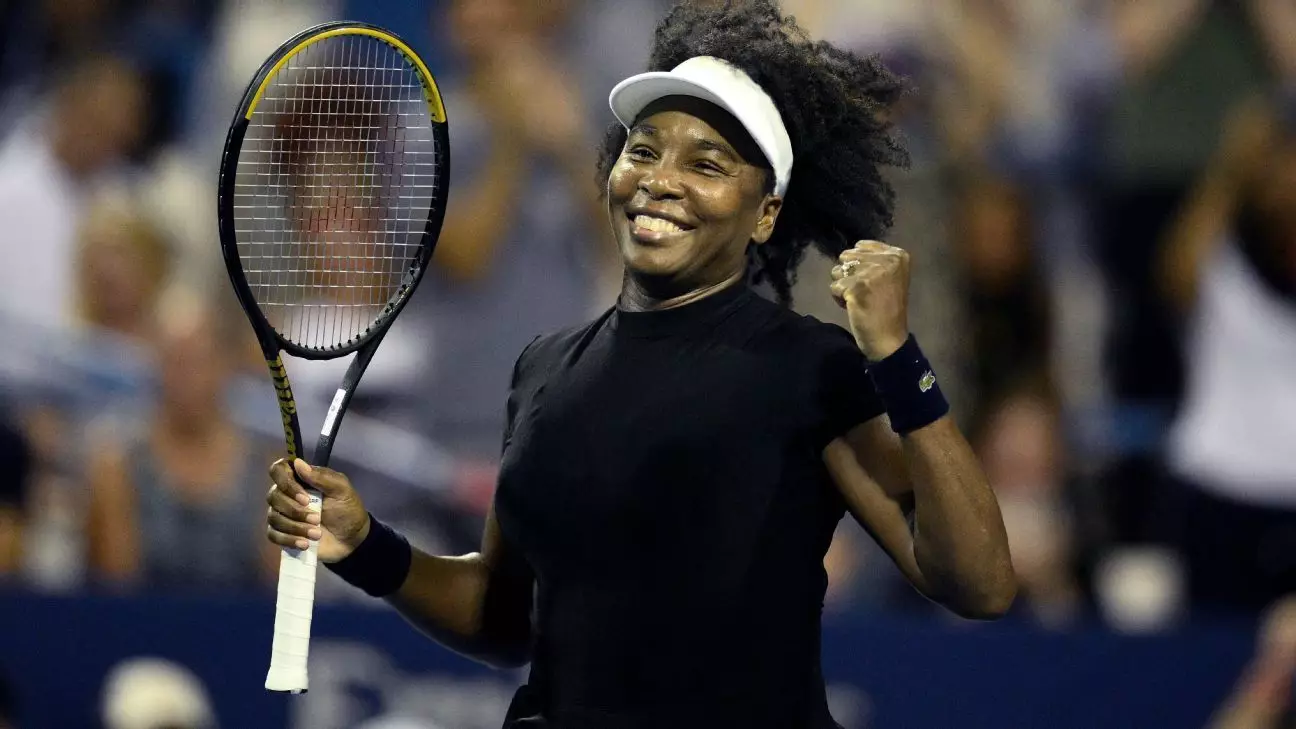Venus Williams’ return to Grand Slam tennis at the age of 45 is more than a mere story of participation; it is a compelling testament to resilience and the unbreakable human spirit. After a two-year hiatus from the spotlight at the highest level of tennis, Williams has secured a wild-card entry into the US Open, marking her triumphant reentry into competitive play. While many see this as a nostalgic farewell or a farewell tour, Williams’ journey signifies much more—an embodiment of perseverance that outshines age and physical setbacks. Her return at this stage of her career defies conventional notions about athletic decline, especially in a sport where youth often reigns supreme.
Despite her age, Williams remains a powerful symbol of enduring excellence. Her competitive spirit refuses to be dampened by the passage of time or recent surgeries. Her participation at the US Open underscores her belief that age is just a number, and that passion and determination can fuel a comeback regardless of the odds. The narrative surrounding her is therefore not merely about personal aspiration but also about challenging societal perceptions of aging in professional sports.
Breaking Barriers and Reshaping Expectations
Williams’ upcoming appearance not only breaks records but also shatters stereotypes about aging athletes. Since Renée Richards competed at 47 in 1981, Williams will be the oldest entrant in singles since then—a milestone that challenges the stereotypes associated with sports longevity. This historic appearance invites a broader discussion about what it means to compete at the highest level beyond traditional age limits. It is a subtle yet powerful statement that athletic prowess is not strictly confined within youth-centric paradigms.
Furthermore, Williams’ comeback is significant in a cultural context. Her visibility as an African American woman championing persistence and resilience resonates deeply within marginalized communities that often face systemic barriers. Her return echoes the message that one’s capacity for achievement is not dictated solely by age or societal expectations but also by a relentless internal drive.
The Significance of Her Athletic Journey
Williams’ career is a tapestry woven with remarkable achievements—multiple Grand Slam singles titles, doubles victories with Serena, and a trailblazing influence on the sport. Her legacy is far-reaching; she has inspired generations of athletes to defy limitations. Her recent high-profile appearances at tournaments like the DC Open, where she became the oldest woman to win a tour-level singles match since Navratilova, exemplify her unwavering competitive fire.
Yet, her journey has not been without setbacks. Surgeries, injuries, and early-round losses have punctuated her career, but each obstacle has fueled her desire to continue competing. Her comments about working on power and speed post-injury reflect a mindset focused not just on survival but on thriving. Her resilience—despite physical setbacks and a long break—serves as a blueprint for anyone aiming to pursue their passions against all odds.
Beyond Tennis: A Voice of Strength and Transparency
Williams’ life off the court adds a compelling dimension to her sports legacy. Her candid discussions about health issues, such as uterine fibroid surgery, and her openness about her personal life—including her engagement—further humanize her in a sport often obsessed with appearance and perfection. These disclosures shed light on the realities faced by elite athletes, particularly women, and challenge the stigmas around health and aging.
Her humorous comments about needing to get back on court to secure health insurance might seem lighthearted but carry deeper implications about the precarious nature of athletic careers. They also highlight her ability to maintain perspective, blending vulnerability with strength. Williams’ willingness to share her experiences, both triumphs and struggles, elevates her beyond a mere competitor to a role model for authenticity and resilience.
The Broader Cultural Impact
Williams’ return at this stage of her career symbolizes hope and determination for many. In a world obsessed with youth and instant results, her perseverance reminds us that greatness is not confined by age or circumstances. Her journey encourages emerging athletes, veteran competitors, and anyone facing setbacks to continue striving with grit and passion.
Moreover, her participation in this year’s US Open broader than just a personal feat; it is an act of defiance against ageism, a celebration of resilience, and a rallying cry for perseverance. As she steps onto the court, she carries with her not just a racket but an unyielding belief that excellence can flourish at any age, inspiring others to challenge norms and redefine what it means to be a champion.

